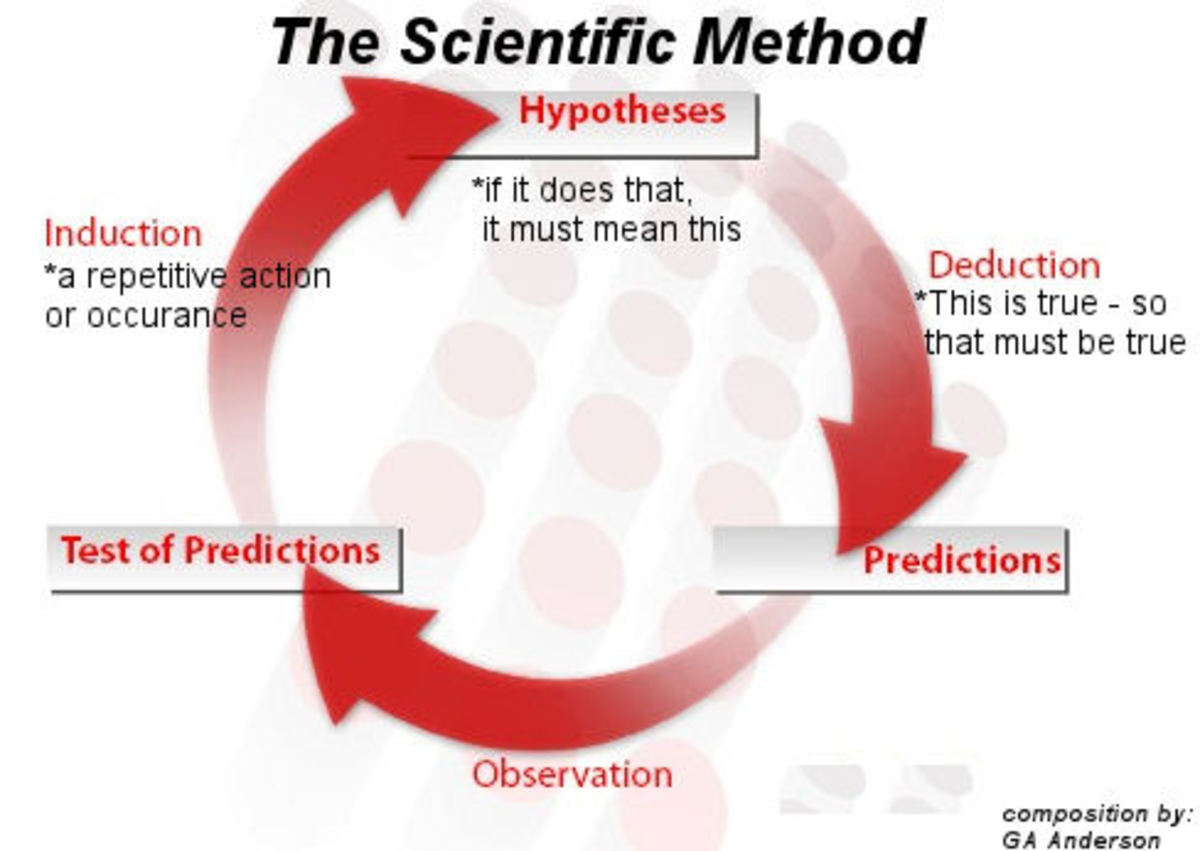The Road To Becoming A Warrior Part 12

The scientific method stresses this idea: Assume nothing. Same as what many Native and Eastern philosophies stress. Observe and gather information. The scientific method tells us to make observation, do experiments, and test and modify hypotheses. Science employs logic and reason to formulate hypothesis and modify them. From these observations we build models. This has only been going on since the 17th century in earnest.
The scientific method, in fact, conforms to and advocates all the ten points I set out at the beginning of this text, as well as the five Toltec points we talked about. That’s pretty amazing to me.
Science is a tool, of course. It is this method for gathering empirical knowledge. The method does not require belief and in fact rejects it. Gathering information on its own is objective. When I did this, that happened. Simple straight forward stuff. But when we get to the hypothesis part, that is speculative. The hypothesis is based on the observations made. It is speculation as to what the observations might mean in a larger context based on evidence. That is basically science philosophy.
When a hypothesis has been tested and proven by experiment done by peers it becomes a theory. A theory is much less speculative than a hypothesis exactly because it has been rigorously tested. Many people say theory and mean hypothesis. Once it is elevated to theory is almost regarded as fact. Yet a theory is still open to modification as new evidence comes to light.
But then there are laws. Laws in science are for all intents and purposes fact. There are very few laws by comparison to theories and very few theories in comparison to hypothesis.
Of course humans are humans and scientists aren’t perfect. The funding mechanism for science is such that people at times stake their reputation and their funding and livelihood on a hypothesis and dogmatically defend it even when evidence to the contrary comes to light. This is not the fault of science, it is the fault of institutions and human beings.
Science does not claim to have all the answers and is actually based on the idea that it is an ongoing process where few if any ever have the last word. This is just like the masters telling us the journey to enlightenment is a lifelong learning process.
People get confused because one day a report will say that coffee was tested and is good for you because it has anti oxidants and the day after a report will say it is bad for you because of the caffeine.
This is confusing to people and they ask: So it is it good for me or not? The logical answer is that one study said the antioxidants were good for you and the other said the caffeine is bad. So like most things it is good and bad for you in different ways. Two different studies done on two different aspects of the same substance. There is no definitive answer to whether it is good or bad. It is both, so if you drink it, probably moderation is a good thing to practice.
However, that part of it all is philosophical. The facts are the results of the tests. What those results mean is often philosophical or just speculative.
The media love sensationalism because it sells better than clear facts, and scientists have a nasty habit of not using words the same way most people do. Case in point is that when a scientist says the universe came about from nothing, they don’t mean nothing. When they say empty space they do not mean space is empty. These are just ways they talk about things for practical reasons. But when they say the universe came from nothing they mean quantum fluctuation which is happening everywhere in space. That constant unseen activity where potential becomes actual and goes back to potential is why space is not empty.
But the media does not catch that. All they say is: Hawking says the universe came from nothing. People shake their heads and say science doesn’t know what it is talking about. That is not the fault of the method; it is the fault of people.
Yet science has made its way in to the human mind. When Einstein first came to the theory of relativity there were perhaps 20 people in the world who understood it. Mostly physicists, and it took most of them a while to grasp it. But now there are thousands who understand it, and thousands more who understand something about it.
The scientific method has crept into our way of thinking. More and more people are incorporating aspects of the method in to their thought process.
When science really started to take off in the right directions we entered what is called the age of enlightenment. More and more people became and are becoming atheists. A new philosophy was born as a direct result of science called materialism.
At first it was clumsy and made mistakes in logic. But everything was on the table including taboos and morality. As I have mentioned elsewhere there was a strong backlash to this new freedom which was chronicled in the books of the time like The Picture of Dorian Grey.
But materialism has changed dramatically. So much so that it is now often referred to as Physicalism. It is a model based solely on the findings of science. But materialists are not immoral beings. In fact, logic dictates morality and moral behaviour. As we have discussed, causing conflict brings conflict. If you want a life of peace and security and love, it is well known that you won’t achieve that by living the life of a thief or an abuser.
As I said before, materialism is simply the model science has thus far shown us. There is nothing but energy/mass, and everything in the universe is made of that one substance in different configurations. It does not mean they like nice shiny material things.
The age of enlightenment meant the beginning of seeing the world as natural rather than supernatural, and there was a hope that superstition would be replaced by rationality and logic.
The human mind has gone through many transformations over the ages. Look at he primates. They have the same brains we have, a triple brain all in one. The only difference between them and us is our ability for complex communication. It is thought that because of this capacity and the fact that we used it, that we advanced so fast and so much differently than our other ape cousins.
Because there is one thing people seem to forget about evolution, and that is that we did not evolve from apes; we are a species of ape. Our minds have gone through the reptilian phase, the early mammal phase and the new primate phase. We been strictly aware beings, strictly aware feeling beings, we have been superstitious beings. We probably have gone through a phase where our personality was not as solid as it is today so that bipolar disorder and schizophrenia was much more prevalent. We have come to the age of the rational mind and it seems to me we are moving slowly toward the age of the logical mind.
To me, science philosophy is what religion should be. It is in fact an evolved kind of religion in that it is the search for knowledge just like religion is supposed to be. But it is more like an eastern religion that a western religion, in that it like Buddhism and Zen do not require faith. They do not claim to have the last word and they all have found patterns of existence like the connection between all things.
Science, like the seeker does not care what the truth turns out to be and the method itself has no stock in what it might be. The logical mind is a new way to enlightenment.
All the old methods of getting there are valid, tried and true. You can reach other states of mind with meditation. You can have out of body experience. You do not need to kill your ego, you just need to modify it. And we have a method which witch we can start over. Forget what we thought we knew and begin to explore from square one. But this time we have a method to help us which is not couched in metaphor in the same way religion is.
For the seeker, a logical mind is invaluable.







